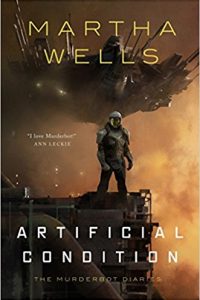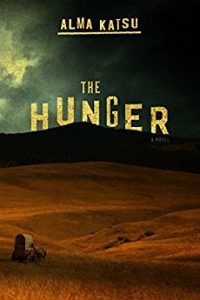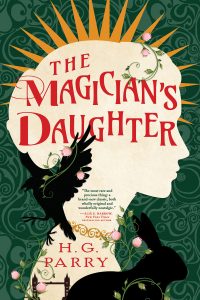Karen Burnham Reviews Short Fiction: Clarkesworld, Tor.com, Shimmer, Apex, and Lightspeed
 Clarkesworld 6/18
Clarkesworld 6/18
Tor.com 6/6/18
Shimmer 7/18
Apex 6/18
Lightspeed 7/18
I’d like to honor the debt I owe to Gardner Dozois: for several illuminating exchanges over the years, for many books, for his editing, and for his reviews. I was shocked and saddened when I heard about his sudden passing. I hope to follow in his footsteps, reading as widely as possible, promoting new voices and new perspectives, and getting a sense of what the field is doing these days. Short fiction is serious business, but a lot of fun as well, and I look forward to bringing my perspective to this endeavor.
June’s Clarkesworld features two stories that meld a slightly old-school feel with contemporary concerns. “Space of One’s Own” by Steve Rasnic Tem features an everyday Joe named Cedric coping with a world in which everything changes all the time – the apartment you leave in the morning is not the same one you return to at the end of the day; it’s probably changed size and location. Virtual helpers are available to help you find your way and drug you into acceptance if needed. Cedric is just trying to get by and to find some semblance of human connection after his wife disappeared. The surreality of the dense and mutable urban environment puts one in mind of J. G. Ballard, with all the futureshock of continually accelerating rates of change. The vivid dream sequences interspersed through the story offer some hope of escape, however transitory. “The Cosmonaut’s Caretaker” by Dora Klindžić has a Cold War SF setting, with Commander Rubashkin of a border patrol spaceship for the Pan Slavic Union maintaining treaties drawn with the Americans and the European Union. In a future where a PSU-created rogue AI doomsday device almost destroyed the solar system, the commander and his crew react very badly when saddled with an AI robot meant to help the commander heal from the physical and psychic scars of losing his leg and most of his family. While the setting would feel familiar in the 1980s, the concerns about post-traumatic stress and different ways of dealing with it feel quite contemporary.
“Vault” by D.A. Xiaolin Spires features two explorers mapping a completely dead and abandoned world, living a precarious existence off the energy their suits generate from their movement and solar power. It starts slowly, but gains interest once they find a new lifeform on this assumed-dead world. The alien’s thermal-based means of communication was completely new to me, and echoes nicely with the characters’ concerns about generating enough power to stay warm through each night. “Your Multicolored Life” by Xing He (translated from Chinese by Andy Dudak) features two men escaping from their societies – Zhang Hua from a slave’s existence in a dystopia and You Ruo from a computer-controlled eutopia. Experienced SF readers will be unsurprised that this does not work out well for either of them. “Heron of Earth” by Vajra Chandrasekera feels like a story set in the pause between two other stories, where the sole survivor of a post-Singularity mission to a re-greened Earth lives in limbo until the potential of a new visitor disturbs her equilibrium.
In early June, Tor.com presented a detective story by Rich Larson, “Meat and Salt and Sparks“. The near future story features a chimp detective, Cu, the only survivor of an uplift program – after the demise of which she was awarded personhood recognition and a hefty settlement package. A murder has been committed using an interesting phenomenon known as echogirls and -boys, people who rent themselves out to be the eyes, ears, and hands of remote users. Cu has to track down the mind behind the hand that pulled the trigger, and it turns out that the perpetrator is looking for her as well…. A solid story that hints at a much wider world, it shows the trauma of being truly one-of-a-kind and the different ways to react to that circumstance.
Shimmer #44 runs mostly to the dark/horror end of the spectrum, but it ends with a story that is a pure ray of hope for writers out there. In “Rapture” by Meg Elison, Elizabeth Barrett Browning is our guide to an afterlife that may be the creation of novelist/poet Murasaki Shikibu (author of The Tale of Genji, ca. 1020 CE). Here authors rest in peace and are woken whenever a reader opens their work and discovers rapture through the reading of it. The authors are nourished whenever their work brings a reader that transcendent feeling of joy and discovery. William Shakespeare, of course, is never in his bed, and Virginia Woolfe is delighted that she is awoken as much these days for Orlando as for Mrs. Dalloway. A little bit of joy for all those who might aspire to immortality through the written word.
The original fiction in Apex Magazine for June leads off with “Three Meetings of the Pregnant Man Support Group” by James Beamon. Men who become the hosts for offspring of very advanced aliens discuss the physiological and psychological changes their condition entails, none of which are terribly pleasant. The terror of a human/alien melding is the first example of horror stemming from hybrid joinings that we’ll see in stories this month. The “pregnant man” scenario is not played for laughs, and the word “choice” comes in for heavy interrogation. “Suzie Q” by Jacqueline Carey gives us a young woman who hoped to escape her degraded reputation from high school when she gets a chance to attend an elite magical university. When she is used and abused even there, she learns to make use of and make peace with the (literal) demons inside her. Her protective relationship with a young boy she meets on the streets adds a lot of depth to a very dark story.
In July Lightspeed finds itself in the interesting situation where some of its science fiction feels more like fantasy and its fantasy feels more like SF. While “Waterbirds” by G.V. Anderson features a companion robot/sexbot, the systems of oppression she encounters out on the British moors could all find analogues in those faced by a maidservant in a 19th-century novel. Luckily the robot, Celia, has fewer pain receptors and two very supportive people in her life. In contrast, leading off the fantasy section is “A Song of Home, the Organ Grinds“, in which James Beamon brings us a steampunk adventure story with more than a touch of horror. Weaponized capuchin monkeys controlled by an organ grinder turn the tide in battles between Turkish and Russian airships of war. The story hints at rational explanations for these circumstances, but, a bit like his “Pregnant Man” story, focuses mainly on the horror of hybridity: between man and machine, animal and machine, and animal and man.
Recommended Stories
“A Song of Home, the Organ Grinds”, James Beamon (Lightspeed 7/18)
“Meat and Salt and Sparks”, Rich Larson (Tor.com 6/6/18)
“Vault”, D.A. Xiaolin Spires (Clarkesworld 6/18)
Karen Burnham is an electromagnetics engineer by way of vocation, and a book reviewer/critic by way of avocation. She has worked on NASA projects including the Dream Chaser spacecraft and currently works in the automotive industry in Michigan. She has reviewed for venues such as Locus Magazine, NYRSF, Strange Horizons, SFSignal.com, and Cascadia Subduction Zone. She has produced podcasts for Locusmag.com and SFSignal.com, especially SF Crossing the Gulf with Karen Lord. Her book on Greg Egan came out from University of Illinois Press in 2014, and she has twice been nominated in the Best Non Fiction category of the British SF Awards.
This review and more like it in the August 2018 issue of Locus.
 While you are here, please take a moment to support Locus with a one-time or recurring donation. We rely on reader donations to keep the magazine and site going, and would like to keep the site paywall free, but WE NEED YOUR FINANCIAL SUPPORT to continue quality coverage of the science fiction and fantasy field.
While you are here, please take a moment to support Locus with a one-time or recurring donation. We rely on reader donations to keep the magazine and site going, and would like to keep the site paywall free, but WE NEED YOUR FINANCIAL SUPPORT to continue quality coverage of the science fiction and fantasy field.








